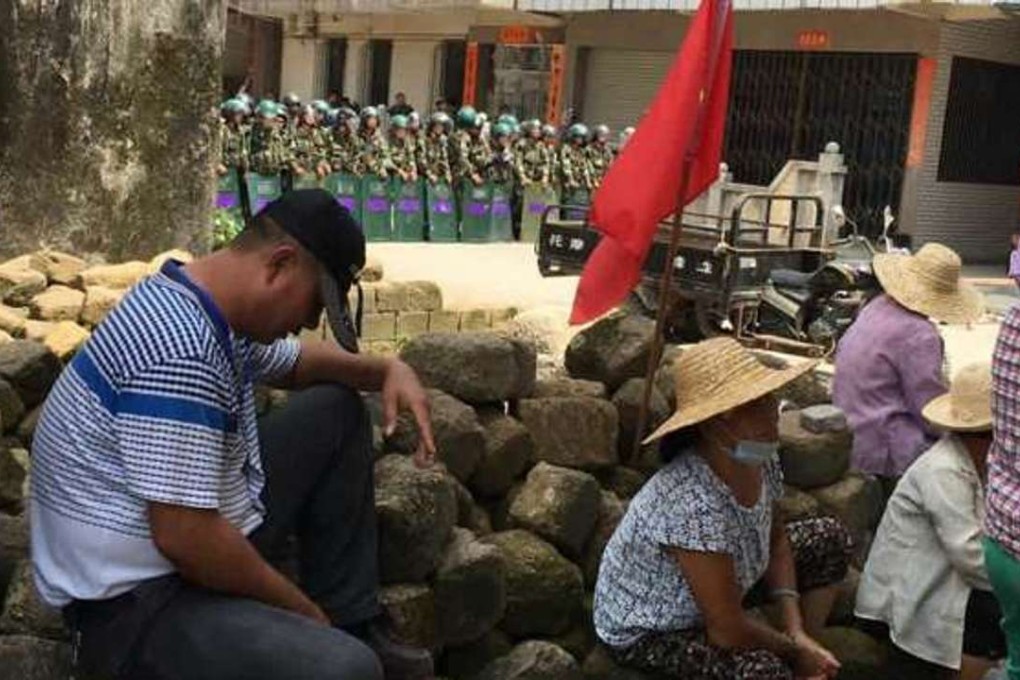Protests in Wukan show the need for conciliation, not coercion
The use of unnecessary force to detain a Post reporter and others interviewing villagers is to be deplored. Instead there is a need for more transparency in handling grievances

News images of conflict this week suggest little has changed in the four or five years since the remote fishing village of Wukan in eastern Guangdong was first in the headlines. In one picture, a line of police behind riot shields forms the background to a violent standoff over land rights, with villagers claiming police used rubber bullets and tear gas as they protested the jailing of their elected chief and other arrests. If that sounds familiar, it is because in 2011-12 similar protests, following the death in custody of a village leader, captured global attention and brought promises of reforms.
Sadly the issue at the heart of the conflict has not changed much in that time either. A land grab involving collusion between officials and developers is far from being fully reversed, despite the arrests of long-time officials. The renewed unrest is a blow to hopes for meaningful reform.
The 2011 revolt against local officials led to intervention by the provincial government to end confrontation and introduce free elections for village leaders that were supposed to result in management of their own affairs. It was hoped Wukan would become a model for resolving land disputes that have plagued national development. But villagers claim land grabs continue.
The authorities recently detained elected Communist Party village secretary Lin Zuluan, 70, and released a video clip of him admitting to taking bribes, which villagers believe was a forced confession. In the wake of the 2011 protests villagers got some land back, but they maintain that bribery of local officials and illegal land grabs loom larger than ever. Just as the underlying reasons for the unrest remain the same, conciliation rather than confrontation remains the best response.
The two sides should exhaust every opportunity to talk and negotiate before police resort to forceto restore order. The use of unnecessary force to detain a Post reporter and others interviewing villagers is to be deplored. Rather, there is a need for more transparency in handling locals’ grievances.